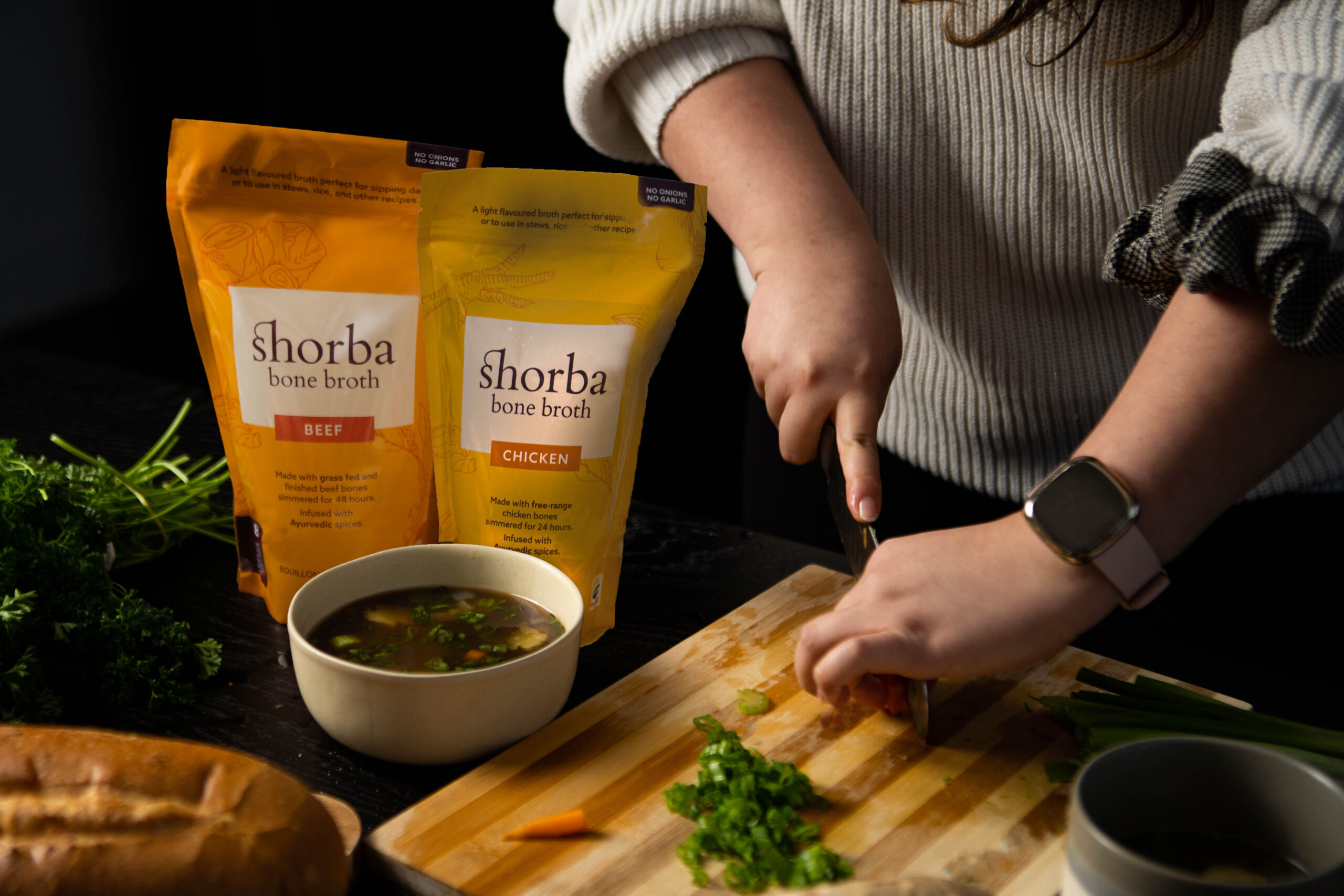Ultimate Parent’s Guide to bone broth during pregnancy and postpartum
Ultimate Parent’s Guide to bone broth during pregnancy and postpartum
Blog Article
The aSignificance of Healthy Food: Why Bone Broth Is a Great Option for Babies
When it concerns your infant's nutrition, every option issues. Bone broth attracts attention as a nutrient-dense option, supplying vital nutrients that sustain development and development. Its rich structure not only aids digestion yet also enhances the immune system. Understanding exactly how to incorporate this functional food into your baby's diet plan can set the stage for healthy and balanced eating behaviors. So, what are the most effective means to introduce bone broth to your youngster?
Nutritional Perks of Bone Broth for Infants
When you present bone broth to your infant's diet plan, you're providing a nutrient-dense food that supplies countless wellness advantages. Packed with vital nutrients, bone broth has calcium, magnesium, and phosphorus, which sustain your child's expanding bones. It's additionally abundant in collagen, aiding in the advancement of healthy and balanced skin, joints, and connective tissues.
Additionally, bone broth is a superb resource of amino acids like glycine and proline, which play a significant duty in total development and muscle mass development. These nutrients help promote a strong immune system, establishing a strong structure for your infant's wellness.
Additionally, bone broth is very easy to digest, making it a gentle option for your child. By including this wholesome food into their dishes, you're guaranteeing they receive vital nutrients needed for their overall well-being. Go in advance and make bone broth a staple in your baby's diet plan!
Just How Bone Broth Sustains Digestion
Bone broth is packed with vital nutrients that can truly profit your baby's food digestion. It advertises digestive tract health and aids with nutrient absorption, making it a great addition to their diet plan. By incorporating bone broth, you're establishing the phase for a healthier digestion system.
Nutrient-Rich Make-up
One of the most nutrient-rich foods you can present to your baby's diet is bone broth, which is packed with vital minerals and amino acids that sustain healthy and balanced food digestion. Rich in collagen, bone broth aids reinforce your infant's digestive tract cellular lining, making it easier for their body to soak up nutrients. By integrating bone broth right into your baby's dishes, you're offering them a wholesome food that nurtures their gastrointestinal system successfully.
Promotes Digestive Tract Health And Wellness
As you present bone broth into your baby's diet regimen, you'll find it not just nurtures however likewise promotes digestive tract wellness effectively. Rich in jelly, bone broth helps relieve the digestive tract, reducing swelling and sustaining a healthy digestive tract lining. Furthermore, the amino acids located in bone broth, such as glycine, aid in food digestion and can assist protect against common stomach difficulties.
Aids Nutrient Absorption
Presenting bone broth not just supports intestine health but also plays a significant function in assisting vitamins and mineral absorption. When you offer your baby bone broth, you're offering a rich source of minerals and amino acids that enhance their digestive procedures. The jelly in bone broth assists to relieve the digestive tract lining, boosting its capacity to absorb essential nutrients. This means that crucial vitamins and minerals from other foods are more successfully used by your infant's growing body. In addition, bone broth has collagen, which sustains the development of healthy and balanced cells and body organs. By incorporating this nutrient-dense fluid into your baby's diet plan, you're guaranteeing they obtain the maximum take advantage of their dishes, promoting overall health and health.
Reinforcing the Body Immune System With Bone Broth

By including bone broth into your baby's diet plan, you're offering a natural resource of nutrients that promotes health. Think about making bone broth a staple in your infant's dishes, as it can play a vital function in their immune wellness and growth.
Easy Ways to Integrate Bone Broth Into Baby's Diet plan
Incorporating bone broth into your baby's diet regimen can be simple and gratifying. Beginning by mixing a percentage of bone broth into pureed vegetables or fruits. This includes flavor and nutrients without frustrating your little one. You can likewise utilize bone broth as a base for soups or stews that you plan for the family, guaranteeing your child obtains a taste of delicious, healthier meals.
Another choice is to offer bone broth on its very own. Warm it up and provide it in a sippy mug or tiny dish-- it's a wonderful way to introduce brand-new flavors. If your child appreciates grains, think about cooking rice or quinoa in bone broth rather than water for extra nutrition. Finally, you can freeze bone broth in ice cube trays, making it easy to include a cube to different recipes whenever you desire. These methods will aid your baby gain the benefits of bone broth effortlessly!
Homemade vs. Store-Bought Bone Broth: What to Select
Which is much better for your child: homemade or store-bought bone broth? Homemade bone broth uses you total control over the ingredients.
On the various other hand, store-bought options are hassle-free and conserve you time. However, they commonly consist of preservatives and may not match the deepness of taste and nourishment you obtain from homemade broth. If you go with store-bought, search for brands that are organic and devoid of additives.
Inevitably, if you have the moment and sources, homemade bone broth is the premium option for your child's health. If you're brief on time, select a quality store-bought option as a back-up.
Age-Appropriate Bone Broth Offering Tips
As your infant grows, it's essential to tailor bone broth offering recommendations to their developmental stage. For infants around 6 months, start with a few does of diluted bone broth (bone broth for infants).
Once your infant reaches around 8 months, next you can offer it cozy in a sippy cup or add it to soft foods like purees. By the time your youngster is around a year old, consider using bone broth as a standalone beverage or blending it right into soups and stews. Just make certain to maintain the broth low in sodium. Always keep an eye on for any kind of reactions, and consult your pediatrician if you have worries about introducing new foods. Appreciate this nourishing enhancement to your baby's diet!
Other Healthy And Balanced Foods to Couple With Bone Broth for Babies
When you're seeking to enhance the dietary worth of bone broth for your infant, consider pairing it with nutrient-dense vegetables like carrots and spinach. Whole grain alternatives, such as news quinoa or brownish rice, can also add texture and fiber. Additionally, integrating healthy protein resources like shredded chicken or lentils will certainly round out the meal nicely.

Nutrient-Dense Vegetables
Nutrient-dense vegetables are a fantastic enhancement to bone broth for infants, improving both flavor and nourishment. Integrating veggies like carrots, spinach, and wonderful potatoes can improve the nutrient material of your broth. Carrots offer beta-carotene for healthy vision, while spinach is packed with iron and calcium, crucial for growth. Wonderful potatoes add all-natural sweet taste and are abundant in fiber, assisting food digestion.
You can easily blend these veggies right into the broth or offer them as soft, cooked items together with it. This not just presents new tastes however also urges your youngster to appreciate a range of nutrients. By pairing nutrient-dense vegetables with bone broth, you're laying the foundation for a healthy and balanced diet plan right from the beginning.
Entire Grain Options

Healthy Healthy Protein Sources
Bone broth pairs splendidly with numerous healthy protein resources, additionally improving your baby's diet plan. Attempt including soft, cooked lentils; they're nutrient-dense and packed with healthy protein. You can also blend in shredded chicken or turkey, which are very easy for your kid to digest. If you're trying to find plant-based choices, take into consideration mashed tofu or pureed chickpeas-- both supply outstanding protein without why not check here frustrating tastes. Eggs, when introduced securely, are an additional fantastic option; they're versatile and loaded with nutrients. Eventually, mixing in some well-cooked quinoa can include a nice structure and extra protein. By integrating these healthy protein sources with bone broth, you're providing your baby a balanced, nourishing meal that sustains their development and advancement.
Often Asked Concerns
Can Bone Broth Cause Allergic Responses in Infants?
Yes, bone broth can create sensitive responses in infants, specifically if they're sensitive to certain ingredients. Constantly consult your pediatrician before presenting brand-new foods and display for any signs of allergies after feeding.
Exactly How Should Bone Broth Be Saved for Infants?
You need to store bone broth in closed containers, either in the refrigerator for up to a week or in the freezer for up to three months. bone broth for infants. Always thaw it appropriately before serving to your baby
Is It Safe to Offer Bone Broth to Premature Babies?
It's necessary to consult your doctor prior to presenting bone broth to early babies. They'll examine your infant's particular health and wellness requirements and assure it's safe, considering their distinct dietary demands and developmental phase. Constantly prioritize professional advice.
What Are the Indications of Intolerance to Bone Broth in Children?
When presenting bone broth, watch for signs like fussiness, breakout, looseness of the bowels, or throwing up. If your child reveals any of these responses, it's finest to speak with a doctor before remaining to provide it.
Can Bone Broth Be Utilized as a Meal Substitute for Newborns?
No, you should not make use of bone broth as a meal substitute for infants. It does not have crucial nutrients needed for their development. Rather, integrate it into their diet regimen along with well balanced dishes for added sustenance and taste.
Report this page